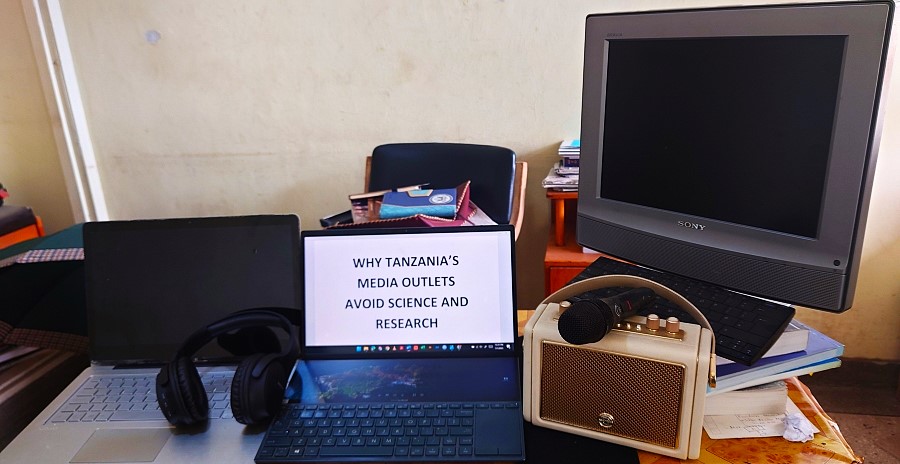Science anyone? Well, not for the Media in Tanzania!
Tanzanian Journalists and the media houses they represent seem to be afraid of tackling science topics in their day-to-day coverage.
It has been discovered that the Tanzanian media landscape prioritizes politics and entertainment over science and research due to lack of proper communication link between local journalists and researchers.
This is according to the research report titled ‘Publish, Tell, Show (PTS) Framework for Effective Research Communication: A Step-by-Step Approach to Maximizing Societal Impact in Tanzania.’
The study was conducted by Syriacus Buguzi, the Science Communication Lead at the Utafiti Forum and Philbert Nyinondi, Lecturer, Department of informatics and Information Technology, Sokoine University of Agriculture.
The recent media assessment found that research findings account for only 1 percent of media coverage, highlighting a critical gap in mainstream reporting on scientific discoveries
This gap, according to the researchers, is partly attributed to researchers’ limited media engagement skills and the absence of institutional efforts to promote research visibility.
Layman tongue
“Translation of research findings into actionable policies and societal change remains limited due to ineffective communication strategies,” an abstract of the report, points out.
Inadequate Institutional Support and Incentives Most researchers receive little to no institutional support for public communication beyond traditional academic publishing.
“However, those engaged in donor-funded research projects tend to receive greater backing for dissemination efforts,” reads part of the report.

Many researchers lack the training and skills required to communicate complex concepts in an engaging and accessible manner, fueled by the absence of structured incentives.
“Even two decades ago, studies highlighted weak communication capacity among Tanzanian researchers, particularly in their interactions with the media.”
While traditional academic publishing is essential for knowledge advancement, it often fails to reach key stakeholders such as policymakers, practitioners, and the general public.
Say it in English
One the other hand, globally, academia operates predominantly in English, while the primary language for media and public discourse in Tanzania is Kiswahili.
This language mismatch creates a significant barrier to effective communication of research findings, restricting public engagement
As a result, valuable research remains underutilized, hindering its potential to inform policy and drive sustainable development
The report points out that, though research plays a critical role in addressing development challenges in Tanzania and globally, the translation of research findings into actionable policies and societal change remains limited due to ineffective communication strategies.
Less investment in research
It is not helping either, that Tanzania pledged to commit just one percent (1%) of its Gross Domestic Product (GDP) to investment in Research and Development.
To address this challenge, the researchers propose the adoption of a novel approach: Publish, Tell, and Show (PTS) Framework for Effective Research Communication.
Researchers believe that the implementation of the PTS framework could serve as a foundational step towards the development of a formalized “PTS Model of Effective Research Communication,” integrated into Tanzania’s research ecosystem and academia.
It also includes the Narrative theory which emphasizes the power of storytelling in engaging audiences, conveying meaning, and influencing perceptions.
As per the report, the principle of “show, don’t tell” is a key storytelling technique that enhances the relatability and emotional appeal of information.
Show! Don’t tell
This approach is upgraded by the PTS framework through the “Show” phase that goes beyond simply understanding the value of narrative to providing a concrete framework for researchers to actively integrate storytelling techniques into their broader communication strategies.
It offers a structured way of translating complex research into compelling narratives that resonate with policymakers, journalists, and the public, making research more impactful that can engage with diverse audiences, for greater impact.

